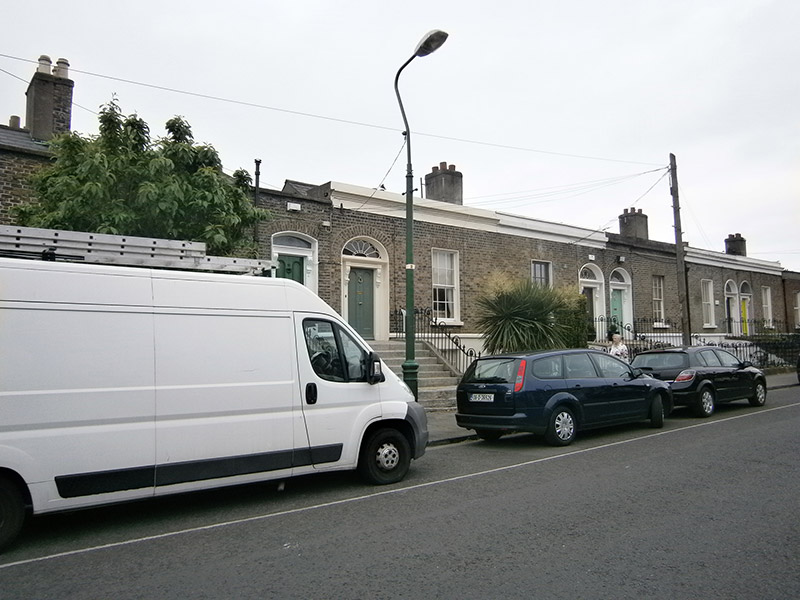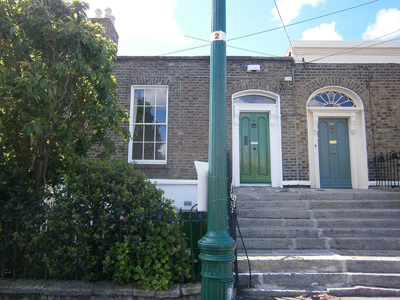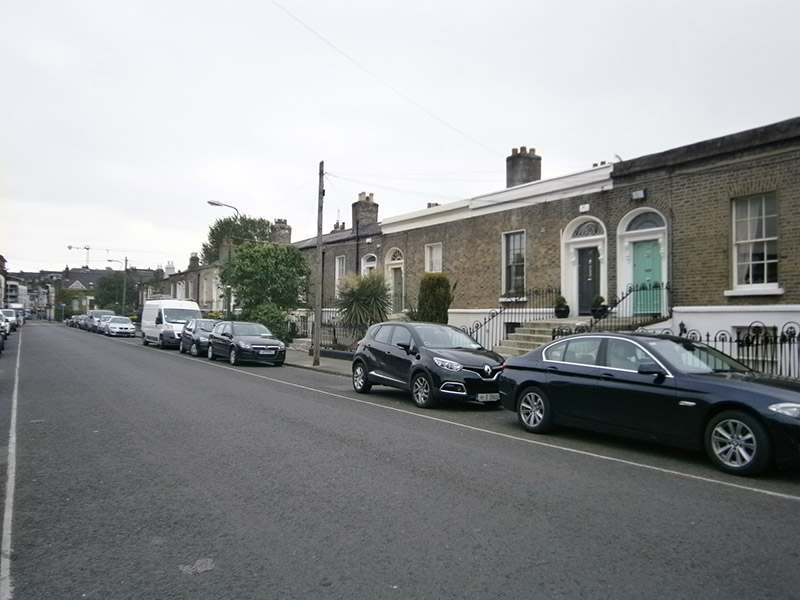Survey Data
Reg No
50110355
Rating
Regional
Categories of Special Interest
Architectural, Artistic
Original Use
House
In Use As
House
Date
1840 - 1850
Coordinates
315430, 233021
Date Recorded
19/05/2017
Date Updated
--/--/--
Description
Terraced two-bay single-storey house over raised basement, built c. 1845, as part of terrace of six. M-profile pitched slate roof, shared brick chimneystack having clay pots, and brick parapet with cut granite coping. Cast-iron rainwater goods and full-height ventilation pipe. Brown brick, laid in Flemish bond, to walls, having cut granite plinth course over rendered wall to basement. Square-headed window openings with granite sills, rendered reveals and six-over-six pane timber sliding sash windows to ground level and eight-over-eight pane timber sash window to basement-level. Segmental-headed door opening having moulded render surround, and timber doorcase comprising panelled pilasters and foliate console brackets supporting stepped cornice. Timber panelled door and teardrop fanlight. Shared granite steps with cast-iron bootscrape and coal-hole cover to platform. Basement area bounded by rendered brick plinth wall with granite coping and wrought-iron railings having alternating anthemion and fleur-de-lis finials. Matching curved gate. Square-headed door to basement. Set back from road, with basement-level front garden.
Appraisal
This house retains its facade composition and historic features, such as timber sliding sash windows and doorcase, which are characteristic of its mid-nineteenth century date. The shared scale and proportions of the terrace contribute to the unified residential neighbourhood character of the locality. The streetscape is further enhanced by the retention of elegant iron railings. Pleasants Street forms part of early Victorian neighbourhood of small genteel townhouses located to the west of Camden Street. The street is named after the philanthropist Thomas Pleasants (1729-1818), who donated money towards the establishment of the nearby Meath Hospital. This terrace (Nos. 25-30) was built during the second phase of development of the street in the mid-1840s.





